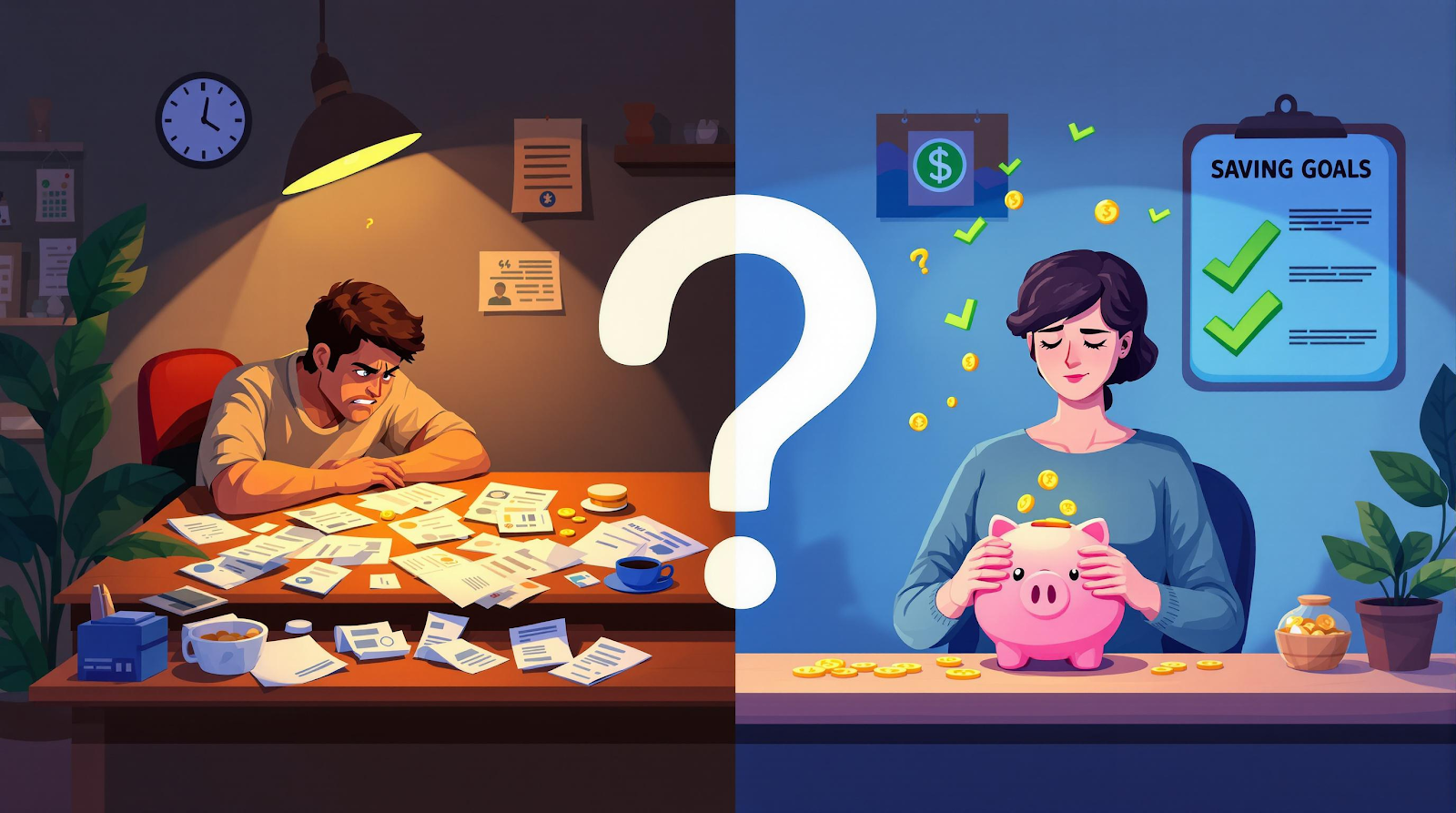The age-old financial question of whether to pay off debt first or start saving immediately doesn't have a one-size-fits-all answer. Your best approach depends on your specific financial situation, the types of debt you carry, and your long-term goals. Let's explore this complex financial decision to help you chart the best course for your future.
Understanding the Financial Tradeoff
When deciding between debt repayment and saving, you're comparing rates. If you're paying 18% interest on credit card debt but earning only 3% in a savings account, you're losing 15% on every dollar you save instead of using it to pay down debt. However, the calculation isn't always this straightforward.
When to Prioritize Debt Repayment
High-Interest Debt
Credit cards and payday loans often carry interest rates of 15-30% or higher. Mathematically speaking, paying these off first makes the most sense since no reasonable investment can consistently outpace these rates.
Emotional Burden
Debt can cause significant stress and anxiety. For many, the psychological benefit of becoming debt-free outweighs strict mathematical optimization.
Improved Credit Score
Reducing debt, particularly credit card balances, can significantly improve your credit score, potentially saving you thousands on future loans.
When to Prioritize Saving
Emergency Fund
Financial experts universally recommend building at least a small emergency fund (typically $1,000) before aggressively tackling debt. This prevents you from accumulating new debt when unexpected expenses arise.
Employer Matching
If your employer offers 401(k) matching, this represents an immediate 50-100% return on investment, far outpacing even high-interest debt. At minimum, consider contributing enough to capture this "free money."
Low-Interest Debt
Some debts, like mortgages or federal student loans, have relatively low interest rates. If these are your only debts, it might be smarter financially to focus on saving or investing while continuing to make the minimum payments..
The Balanced Approach
Most financial advisors recommend a balanced strategy:
- Build a small emergency fund ($1,000-2,000)
- Capture any employer retirement matching
- Aggressively pay down high-interest debt
- Build a full emergency fund (3-6 months of expenses)
- Simultaneously save for retirement and tackle low-interest debt
Tailoring Your Strategy
Your specific circumstances should guide your approach:
Your Age
Younger individuals benefit more from early retirement savings due to compound interest, while those closer to retirement might prioritize debt elimination.
Job Security
Those with unstable income should focus more on emergency savings, while those with secure jobs might aggressively tackle debt.
Interest Rates
The higher your debt interest rates, the more you should prioritize repayment over saving.
Final Thoughts
For most people, the choice between paying off debt and saving isn’t an all-or-nothing decision. The smartest move is usually balanced, making steady, meaningful progress on both fronts. Start small, build momentum, and adjust your approach as your financial situation changes.
Remember that personal finance is ultimately personal. While mathematical optimization matters, your comfort level, sleep quality, and financial confidence are equally important factors in determining the right balance for you.
Need help setting financial goals? Visit WebsitesThatSave.com for tools, tips, and resources.
Are you starting a small business or a side hustle and need a website? CustomBizWeb.com can help you build your website.



No comments:
Post a Comment